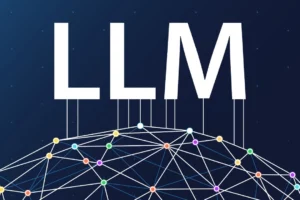The intricate complexities of the human mind have captivated great thinkers for millennia. Yet that quintessential spark of intelligence behind our every thought and action remains largely mysterious. But what if, through the lens of logical reasoning and automated theorem proving, we could unravel this enigma? Can the structured nature of mathematical logic provide the scaffolding for replicating the breadth of human cognition in artificial general intelligence (AGI)?
The Enduring Quest for a Unified Theory
In the pursuit of AGI, numerous approaches have been explored over decades of research. Machine learning, with its pattern recognition prowess, has achieved remarkable feats in narrow domains. However, capturing the adaptability and well-roundedness that defines human intelligence remains an open challenge.
This highlights the need for a unified theory that integrates reasoning, decision making, creativity, social intelligence, and other facets of cognition. Mathematical logic, with its precise symbolic manipulation, provides fertile ground for developing such an overarching framework for intelligence.
The Appeal of Formal Logical Systems
Since ancient times, logic and mathematics have held unique promise in unraveling the inner workings of the mind. Formal logical systems enable drawing valid conclusions from a set of premises – a process reminiscent of human reasoning.
Modern logic programming and automated reasoning take this further by algorithmically manipulating symbols and rules to solve problems, prove theorems, and more. Here, the rigid structures of logic mirror aspects of human cognition.
Building Blocks of Logical Intelligence
Several domains within mathematical logic and automated reasoning hold particular potential for illuminating the principles behind intelligence:
Propositional Logic – The Basic Foundation
Propositional logic deals with propositions that can be either true or false, along with logical connectives like AND, OR, NOT. This forms a simple yet powerful system for modeling factual knowledge and inferences.
First Order Predicate Logic – Increased Expressiveness
Building upon propositional logic, first order predicate logic introduces variables and quantifiers for universal and existential statements. This allows representing complex conceptual relationships – a stepping stone towards mimicking cognition.
Modal Logic – Reasoning About Possibilities
By incorporating modalities like possibility, necessity, belief, obligation, modal logic enables hypothesizing about alternate worlds and lines of reasoning. This mirrors the adaptability of human reasoning in navigating uncertainties.
Defeasible Logic – The Dynamic Nature of Reasoning
Defeasible logic and other nonmonotonic formalisms capture a key aspect of intelligence – the ability to retract conclusions based on new evidence. Such adaptability to changing information provides a closer approximation to cognition.

Bridging the Gap Between Rigid Logic and Unconstrained Reality
Despite the promise logical systems hold, significant challenges remain in bridging rigid formalisms with the dynamic nature of the real world:
Scalability Struggles
Logical reasoning often demands massive datasets and computational muscle for tackling real-world complexity – posing hurdles in scalable implementations.
The Commonsense Reasoning Barrier
Incorporating the implicit and commonsense knowledge that humans effortlessly use remains an uphill task for logic programming approaches.
Lack of Grounding in Physical Reality
Bridging logical reasoning with interactive embodiment and perceiving the external world through sensors and actuators remains a persisting challenge.
Ongoing Explorations at the Frontiers
Despite these limitations, promising avenues at the intersection of logic, learning and interaction are being actively explored:
Neuro-Symbolic AI – A Complementary Future
Combining neural learning mechanisms with symbolic logic systems aims to leverage complementary strengths – statistical pattern recognition and structured knowledge representation.
Incorporating Uncertainty – Probabilistic Logical Models
Probabilistic extensions such as Markov Logic Networks integrate uncertainty and distributions into logical systems – essential for adapting to the real world.
Explainable AI – Illuminating the Black Box
Interpretability approaches for neural networks also offer potential for integrating logical representations. Such transparency is crucial for trust and understanding in intelligent systems.
A Multifaceted Quest Calls for Diverse Tools
While formal logical systems provide invaluable frameworks, the quest for artificial general intelligence arguably requires multifarious capabilities:
- Learning from raw sensory data at scale like humans.
- Interactive embodiment enabling goal-driven physical action.
- Social and emotional intelligence for coherent cooperative behavior.
As we continue to decode the perplexing wonder that is intelligence, combining complementary approaches appears to be the most promising path ahead.
The Journey Continues…
Unraveling the mystery behind versatile, adaptable, and multipurpose human-level intelligence remains an endeavor ripe with open questions and uncharted frontiers. While logic and reasoning may not hold all the answers, they do provide valuable footholds into the workings of cognition. As this journey continues towards artificially replicating our own essence, the very notion of intelligence transforms and forces us to confront existential questions profoundly intertwined with the human condition.
















Add Comment